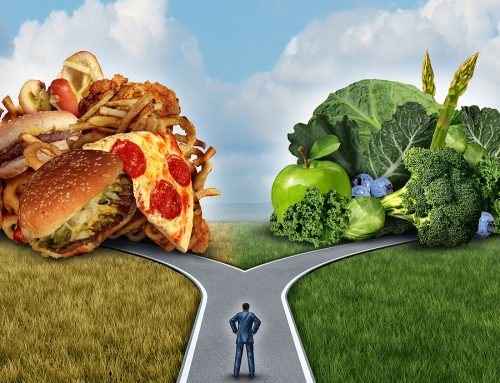Less than two decades ago, coconut oil was pegged by media activists as one of the worst foods you could eat. In a surprising reversal, today coconut oil is promoted as a health food and even a fat loss “miracle.” On the internet, coconut oil has developed a cult following in alternative – natural health communities and it has started to get attention from the mainstream. Burn the Fat, Feed the Muscle readers are asking me about it and even public health organizations are taking another look and reconsidering positions on coconut oil and saturated fat. However, there are still major misconceptions and overblown claims being made about this tropical oil, so if you want to avoid wasting money, or making a big greasy nutrition mistake that could actually make you fatter, then read on…
 It was 1994 when the Center for Science in the Public Interest (CSPI), a Washington DC consumer watchdog group, dropped a news bomb that exploded across the airwaves. CSPI director Michael Jacobson published a damning article in his nutrition newsletter, revealing that “Movie theater popcorn cooked in coconut oil is one of the single worst foods you can buy.” His scathing criticism centered mostly on the high saturated fat content.
It was 1994 when the Center for Science in the Public Interest (CSPI), a Washington DC consumer watchdog group, dropped a news bomb that exploded across the airwaves. CSPI director Michael Jacobson published a damning article in his nutrition newsletter, revealing that “Movie theater popcorn cooked in coconut oil is one of the single worst foods you can buy.” His scathing criticism centered mostly on the high saturated fat content.
From that day forward, tropical oils were blacklisted. One reason is because at the time, a clear distinction was not made between the hydrogenated tropical oils which contained the harmful trans fatty acids and the unrefined oils which did not. Another was that for many decades prior, the standard public health advice was the generalization: “saturated fat is bad.”
Over the last decade and a half, health scientists have continued investigating the saturated fat and heart disease connection. They discovered that it’s more complicated than simply saying, “All saturated fats are bad – don’t eat them.” Although this is still being researched and debated, the predominant belief now is that whether saturated fat will have a negative impact on your health depends on your genetic predispositions, your current medical conditions, what type of saturated fat you eat, how much saturated fat you eat and what else is in your diet.
Recent studies have also posed the question, “if you remove saturated fat, what are you replacing it with?” Many people cut out the fat and replace it with sugar and refined carbs. That’s just as bad, and for people with certain health problems, it’s worse.
A tipping point has still not been reached in the mainstream health world about saturated fat intake. Conventional and conservative nutritionists or public health policy makers are slow and cautious about updating their recommendations and most of them still stand: They suggest keeping total fat intake under 30% of total calories and saturated fat to 10% of less of that. But opinions are clearly changing – including about coconut oil.
In his “Ask the Dietician” column at the Burn the Fat Inner Circle, Chris Mohr, PhD, RD, explains:
“Coconut oil has traditionally gotten a bad rap because it is mostly saturated fat, and it has been shown through research that saturated fat increased the risk of heart disease. Put those two sentences together and in the most simplistic terms, it means too much coconut oil can cause heart disease.
But then some research started to emerge looking more closely at the type of saturated fat is in coconut oil (primarily lauric acid). Proponents also started to point at the longevity of some populations in tropical areas who have been eating coconut oil for centuries as evidence that it should be part of the diet.
Not surprisingly, some people online started to suggest coconut oil has some magical “cure all” health properties. Of course, there are always two sides to every story. I like coconut oil – but with a catch…
1. Stick to unprocessed extra virgin coconut oil
2. Replace less healthy processed and trans fats with unprocessed extra virgin coconut oil
3. Coconut oil is not a magical cure all like some suggest. It’s a healthier saturated fat. That’s all.
I like it if its used as a replacement for less healthy, processed saturated fats and trans fats. I’m not suggesting you buy tubs of coconut oil and eat it by the spoonful. It’s not about adding coconut oil to a junk food diet. Its about replacing, and that’s the key.
So the general recommendations still stand true – keep saturated fat under 10% of your total fat calories, but within that recommendation, focus on saturated fats that aren’t processed, which is exactly where (unprocessed) extra virgin coconut oil could come into play.”
Dr. Chris Mohr has done a great job summarizing the current evidence-based health recommendations, but what about the fat loss claims for coconut?
Some people think they’re doing themselves good by adding in some health food, but they often eat more calories of those healthy foods than they’re burning each day. Or they add in a health food and something happens in their thought process where they feel this allows them to eat more calories somewhere else. This is part of “the health halo effect” and it’s a major reason many people can’t lose weight – they are focused purely on eating healthier foods without paying attention to eating within their calorie deficit.
Getting healthier and losing weight overlap, but they are two separate goals.
That’s why it bothers me when health food companies make aggressive claims for coconut oil and weight loss. There is little evidence that adding coconut oil will help you lose weight. In fact, again, the extra calories could make you fat if they contribute to a surplus. Some people take this stuff as if it has zero calories and burns fat on top of that! (duh!)
The little evidence is based primarily on research with medium chain triglycericdes (MCT), which have a thermogenic effect. Coconut oil contains MCT. However, studies on MCT and fat loss were on pure MCT oil, not coconut oil. Even if a food or oil has a major thermogenic effect, it delivers calories. Some of those calories may be burned off via thermogenesis, but there are still net calories remaining. So to achieve any fat burning benefit, you would have to replace other fats with the MCT’s, not add oil on top of your current diet. Even then, the effect of MCT’s was never much to write home about and the product never really caught on. I tried it back in the day (does anyone remember that orange creamsicle MCT oil? It didn’t taste bad but it left a weird scratchy feeling in the back of your throat), anyway, I never noticed any difference – health, energy, fat loss, strength – nothing.
People jump on bandwagons every time they hear about a “new health food miracle” (remember acai berry?) and in the online health world, coconut is one of the current trendy items. But don’t start adding tablespoons of coconut oil on top of your current diet plan arbitrarily. If you add in any additional dietary fats, you have to add them within your current calorie budget. If you have a very limited calorie budget because you’re in a deficit for fat loss, also remember that coconut oil does not contain the valuable omega-3 fatty acids and you’ll want to make sure you leave room for fitting those healthy fats into your calorie budget first.
Personally, I don’t use coconut oil on a regular basis, so I can’t speak much from experience. I’ve used it occasionally and I would use it again if it were called for in a recipe. That’s another benefit that advocates of coconut oil like to mention: It’s heat stable so you can cook with it and it can add flavor as a primary ingredient. A lot of people like the taste of fresh shredded coconut too.
For those who want to include coconut oil in their meals, the unprocessed natural kind (extra virgin, not hydrogenated), looks like a perfectly healthy choice, within a balanced overall nutrition plan. Coconut oil is not a cure-all, but I won’t be surprised if mainstream nutritionists continue to update their position stands on saturated fat and health, or if some coconut oil health benefits are confirmed.
Coconut oil is also NOT a weight loss miracle, and chugging the stuff every day just because an internet natural health guru told you to is a mistake that could prevent you from losing weight or actually make you fatter. Even healthy oils are not calorie free.
– Tom Venuto, author of
Burn the Fat Feed the Muscle and The Body Fat Solution
Founder and CEO of
www.BurnTheFatInnerCircle.com
Members only area:
Medium Chain Triglycerides (MCTs): Can This Fat Make You Thin? (complete research review): www.burnthefatinnercircle.com/members/Medium_Chain_Triglycerides_MCTs_and_MCT_oil.cfm
PS. Best coconut oil video on the internet:
About Tom Venuto







Whenever I add coconut milk into my diet it tends to make me crave more sweets plus i don’t need the added calories. I have replaced my olive oil on my salad with coconut oil as it does not contain the omega 6 and I am enjoying this, I use it instead of butter in my cooking and in my meals. I also follow the Perfect Health Diet 90% of the time and I have added coconut oil into my fasting days and this helps a tremendous amount. I like your thoughts about replacing the fats and not adding more in.
Thank you for your article – I agree, there is no one solution.
Great article, Tom. This trend goes beyond coconut oil. I see it all the time with “superfoods” (chocolate, various mystical berries etc). People eat a garbage diet, throw some “superfoods” (chia seeds anyone?) in there and think they’re good to go. These same people often criticize folks (like me) who have oatmeal after their workouts under the “all carbs are bad all the time” mantra.
Keep up the good work. Some of us get the “clean eating” idea.
You are spot on, Tom.
Thanks julie, joe, DBS!
Thanks Tom. Everyone wants a quick fix and they want it now! I have added some coconut oil to my diet and quite like it. Everything in moderation. The latest I’m hearing now is about Green Coffee Beans. What are your comments on this one? I’m told Dr. Oz had a nutritionist on his show promoting them, so it must be good.???
chris, thanks for your post. I will do a full write up on green coffee bean AND raspberry ketone on deck too, when i finish reading the last of the scientific papers on them first. this way I can report purely based on the evidence. Cheers!
Dear Tom,
I was very glad to see this article and it has explained well and in great detail what I was previously “guessing”. I remember the days back in the 70’s when my father, a heart surgery survivor, was on a strict heart-healthy diet and coconut oil was a complete no-no. We were told that anything using coconut oil was to be avoided sue to it’s saturated fat. So I was very surprised to see the huge surge in popularity in the past year. Obviously marketing is at the root, but the explanation by Dr Mohr is so straightforward and sensible that any thinking person should have intuited! Here is a great tasting recipe with unsweetend coconut flakes, it makes about 23 one inch cookie scoops, and is very sweet and satisfying if you just need a little dessert sometime!
No-Bake Energy Balls
· 1 cup (dry) oatmeal (old-fashioned oats)
· 1 cup toasted coconut flakes
· 1/2 cup chocolate chips
· 1/2 cup peanut butter
· 1/2 cup ground flax seed
· 1/3 cup honey(I use 1/4 c. honey as they are quite sweet)
· 1 tsp. vanilla
Method:
Stir all ingredients together in a medium bowl until thoroughly mixed. Let chill in the refrigerator for half an hour. Once chilled, roll into balls of whatever size you would like. (Mine were about 1 in. in diameter, I used a ground coffee scoop.) Store in an airtight container and keep cool. Makes 23 inch balls.
I actually use it in place of Crisco when that is called for. It makes decent GF pie crusts and cookies that are tasty. Again, this is not something you do every week, let alone every day. But to up the health quotient of a dessert or even a meat or pot pie, it works great. Better than Butter or margarine and (what isn’t) infinitely better than crisco.
Great article! I don’t use coconut oil. But, I do drink unsweetened coconut milk. I use it in tea or coffee, a half cup in berry smoothies (delicious). I don’t drink more than a half cup to 1.5 cups in a day. It’s actually pretty low calorie and fits fine into my maintenance calories. It tastes very good to me, but I love coconut. It does not have any effects on me other than tasting good and fitting into my calories.
Oh, I also add a half cup to cream of wheat.
Interesting I just posted something about this to some Inner Circle people just before I read this. When I started cooking with coconut oil, my cholesterol, which had been stuck at 200 since my 20s, went into the 170s, my LDL went down and my HDL went up. I recently started using it again, along with MCT oil, because I really believe it in, and I think how it’s used is very important as a health food. It doesn’t make sense to mix any oil with sugar … like the creamsicle … and adding Omega 3 seems to enhance the coconut oil for people with degenerative brain disease. I recently had put my mom on it for her dementia based on the experience of Dr. Mary Newport. I noticed differences in her almost the first day. Here’s a video about that:
http://www.cbn.com/tv/1472017228001
Great article Tom. I use coconut oil only sparingly. I like the taste of it but I dont use it believing that it’s some magical fat loss potion. Just like olive oil there can be too much of a “good” thing. I cringe when I see chefs like Rachel Ray just pour heaping amounts of olive oil on foods.
Thank you Tom for sharing. I currently use coconut oil spray when I cook on the stove top because it adds nice flavor and can withstand the “high heat”. Are there better oils to use when cooking on the stove? Thanks!
Thank you for a balanced article on virgin-coconut oil. There is something I would like to add. I have struggled with very bad gout attacks for many years. It become so bad that I had to struggle along with crutches for months! I started to use coconut oil for other reasons (I was caught up in the fat burning hype), but something amazing started to happen – My gout disappeared after regular use of virgin coconut oil for about 3 months. It’s been 5 years now without an attack. I did stop using it for a while about a year and a half ago and the gout came back. I therefor continued with the coconut oil (about 1 to 3 tablespoons per day) and I am gout free. Coincidentally I also lost weight (about 20 kg), but not because of the coconut oil. I lost it because of a balanced diet and a HIT training program.
Dear Piete,
I am glad you are sharing the information on what helped you to battle your war against that gout! If you ever feel like your body is getting used to Coconut Oil and you need an alternative while giving your body a break from it.Cherries are also good in the fight against gout.Often times what works for one person may not work for another but *IT”S WORTH THE SHOT* -FROM*MY HEART* tO *YOU AND YOUR FAMILY* XOXOXO *GESUNDHEIT*
Avoiding foods that contain purines like red meats ,poultry,mushrooms,and most cereals might also help to reduce the painful inflammation associated with gout.To the best of my knowledge seafood is also high in purines so during a sudden onset of gout ,you might try getting your protein from sources like nuts and seeds.I pray these ideas will come in handy (: oh!!! I forgot an *r* in the first reply!!!@@!! (:
Until people realize that they actually have to put in the work, the so called “miracle” products will continue to sell. HCG, Acai berry,and now coconut oil.
Great post Tom! You’re AC360 (CNN) version of Keeping Them Honest.
*Cococnut Oil* vs> *Coconut Palm Sugar*
Very valuable post. Thanks for sharing this detailed clarification.
Are there any further sources (blogs, studies,…) that you recommend to read more about this coconut oil discussion?
Thanks
Really deep and informative Post, I loved it. Thanks Tom for your efforts,
Hey Tom, good article and I love coconut oil. What you say about people consuming coconut oil every day and thinking they will lose weight, this reminds me of the old buy more to save more ploy. Thank you.
great contents and information